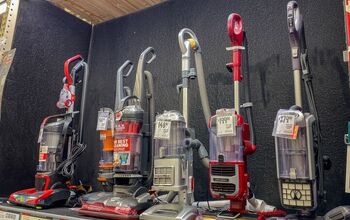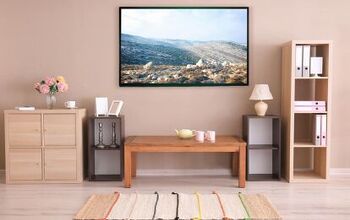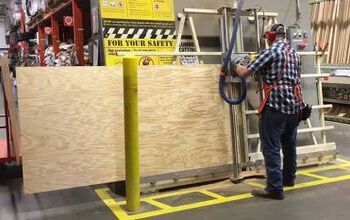Attached Vs. Detached Family Homes: What Are The Major Differences?

Making any sort of home decision is most always considered to be a “big one,” so don’t feel like you’re always needing to go at it alone. If you’ve been considering moving to a detached home, or have your sights set on keeping cozy, allow us to lend you some assistance.
An attached family home has an exterior wall touching the home next to it, whereas a detached home is a standalone home, without any other homes or buildings attached to it. Attached homes are more affordable and closer to stores and hospitals. Detached homes are better as they can offer more space for a backyard, driveway, or garage. Detached homes have room for more additions like pools or a larger garden.
There are several pros and cons with attached vs. detached family homes. We’d like to shine a spotlight on a few of those for you.
Do You Need to Hire an Architect or a Builder?
Get free, zero-commitment quotes from pro contractors near you.

What Does “Attached Family Home” Mean?
An attached family home, or an “SFR,” (Single Family Residence), is the way to describe a home that has an exterior wall touching the next home nearby. Attached homes are still sitting on one individual lot, however, they are attached by that common exterior wall in between them.
Out of nearly a million homes sold in the year of 2020, only a fraction, approximately 83,000, of that gigantic number was for attached homes.
Curious as to how many families live in attached homes in the U.S.? There’s approximately a whopping 116 MILLION families living in housing units at this time. (Even though more than 80 percent of families prefer the detached lifestyle).
What Does “Detached Family Home” Mean?
A detached family home is simply referring to a single, “stand-alone” home. In other words, this residential building will be free standing, without another home attached to it. These homes will sit upon a single lot by themselves, without any other exterior walls or buildings being shared with its own.
This means you usually have more acreage or land, to do as you please on without too many people right next to you. Sure, you’ll still have neighbors in most cases, depending on the amount of land that you desire.
You could opt for a nice neighborhood that has cul-de-sacs and a housing plan, or could even purchase some land far out into the country to really get the feel for living life on the homefront.
What Are The Differences Between Attached And Detached Homes?
Attached and detached homes are both terms that are used to define the basic layout of your home in relation to others. Let’s talk about each option.
- Attached homes have other units that share at least one wall with their neighbors. This can include rowhomes, townhouse-style condos, as well as houses that are literally just two separate floors with two separate entrances. Technically, apartment buildings are also attached homes.
- Detached homes are houses that stand alone, no walls shared. Most standard homes in surburban areas count as this type of home. It’s worth noting that there is no space minimum to make them count as detached. Even if your house only has six inches of space from your neighbors, it’s still a detached home.
- Some people suggest that there is a third category of housing named semi-attached. This means that you only share one wall with a neighbor. However, this isn’t always the case. I mean, most people tend to see a simple dichotomy.
How Does Ownership Differ Between Attached And Detached Homes?
Honestly, it depends on the specific unit you want to have. If you have an attached home, it’s likely that you will have at least one stipulation where you have limits on what you can do to your home. In most communities, attached homes are generally owned or managed by an HOA.
If you have a detached home, it typically has its own lot. This means that it’s your property and that you get to have more control over it. Though HOA’s might also give their 0.02 cents on what you should do there, there’s still a ton more that you can do in a detached home.
What Are The Pros And Cons Of Each Type Of Home?
Due to the fact that the benefits tend to be easier to debate when you compare and contrast the two, I’m going to merge the points for each in one section. Here’s what you should expect from each type of housing.
- Attached homes can carry additional risks, depending on your neighbors and the quality of the home. If your neighbors catch their part of the building on fire, it’ll be likely to spread to yours. The same can be said about pest infestations, including things like bed bugs and cockroaches.
- Detached homes are generally more expensive and exclusive than attached homes. This is because they are more secure and also happen to give you space between you and your neighbor. In many parts of the country, detached homes are also a sign of a more upscale neighborhood.
- Attached homes are more likely to be rented out. This is not always true, but it’s true often enough for people to keep in mind. Many people who buy attached homes like apartment buildings choose on unit for themselves then rent out the unit next to their attached home. It’s a source of income.
- Many cities are specifically marked by their attached home setups. New York City’s massive condos and co-ops spring to mind, as does Philadelphia’s row houses. Regardless of whether it’s considered “iconic” or not, it’s still hard to ignore how common attached homes are in large towns.
- Attached homes are also smaller than detached homes. Houses are now starting to get a little smaller, only due to the demand that people have in them. This is why many people tend to get an attached home in a multi-family unit as their first “starter home.”
Benefits of Attached House
So, you may be wondering just how there could possibly be any benefits to attached houses whenever we just mentioned that around 80 percent of families don’t prefer them, right?
Well there are quite a few benefits, actually. Check out the list below.
- Affordability
- Close to Neighbors
- Closer proximity to Stores, Hospitals, Family members
Obviously, not everyone enjoys living super close to family or friends, but then again, many folks do. If you’re making the chips and dip for Superbowl night, and run out of an ingredient, you may find it way easier to pop over to the couple next door to lend you a hand.
Or, if you’d prefer to get out and grab your own groceries instead, you can check out the endless options you’ll most likely have nearby that will get you there and back before the half-time show.
Living in attached housing also provides proximity to nearby parks, hospitals, banks, or highways. (This can go for detached options as well, but housing units that are attached are most often found in urban areas).
Affordable housing is always available in this option, since you’ll have less space to pay for and less parking to shell out additional income for.
What Does Detached Housing Mean in Real Estate?
As stated previously, realtors simply refer to detached housing as a property that stands alone. They typically have more floor space as well, as opposed to attached family homes.
“Detached,” can also refer to a detached garage, which was not as popular until after the time of World War 2. This can be a sure indicator of an older property for realtors.
Detached garages may not have the luxury of being right smack against (or in) your home, but they still carry a few benefits such as:
- Less fumes to leak into your house
- Fewer rates on your gas bill since it will unlikely be heated
Benefits of “Detached” House
According to the Census Bureau, there were approximately 822,000 single family homes sold in the year 2020. Out of that already mind-blowing number, a staggering 739,000 of them were detached houses.
Even before the pandemic hit the housing market, the detached housing preference remains steadily growing stronger and stronger year over year.
Let’s touch on a few of the benefits below that we’ll describe in more detail:
- Larger area of land
- Better chance to grow crops or raise livestock
- Have your own driveway, garage or fenced in area
- Potential room for a pool, an add-on, or more activities
As people increasingly tend to want to gain access to more land to grow crops, small gardens, or raise animals, more single-family detached homes are being sold than ever before.
Detached homes are becoming more beneficial to more homeowners due to additional privacy and better opportunities for proper social distancing.
Most times, these houses will always give you “more bang for your buck,” as they have more space, less neighbors, and fewer rules and restrictions.
You may end up paying the same amount of money for a 2 bedroom attached home with a little land, as you would for a 4 bedroom small lot with a detached house and garage. It’s all in what works best for you in the long run.
“Attached” House vs. Townhouse
Some refer to townhouses as an attached house. Townhouses can also be confused with condominiums, since they are very similar to one another.
Townhouses are typically classified as attached homes, since their exterior walls are touching. As are condos, and duplexes as well. We’ll talk more about duplexes in the next section if you’re interested in learning more about them for your house hunting adventure.
What Does “Semi-Detached” House Mean?
Semi-detached houses are most often duplexes. A duplex is simply a single family home split down the middle, so that two families are then able to live on either side of the house.
This means that they are only attached by one single wall, (most often in the middle). This is not to be confused with a housing unit or complex, where multiple families are residing in multiple homes that are attached to one another.
You may have heard of an “end-of-terrace” property before. This form of housing can also be referred to as a semi-detached house, since it shares only one single wall with another house.
Which One Is Right For You: Attached Or Detached Homes?
Choosing attached or detached homes both come with their perks and pitfalls. Though I cannot tell which one is right for you, I can offer up some important insights.
Location
Most attached homes can be found in larger cities as well as areas that are highly populated in the suburbs. Detached homes tend to be in more sparsely-populated areas, and are also more likely to give you a certain level of independence. If city life and having neighbors is ideal for you, then go with an attached home.
It’s important to realize that certain areas will not allow attached homes in the area. This is particularly common in historical districts as well as specific parts of San Francisco. On a similar note, detached homes are not going to be able to stay available in places like Hoboken or New York City.
Pricing
Attached homes are generally going to be cheaper than buying detached homes of the same size. There are some minor differences here, though. Most people buy a single unit in a multi-family attached home, like a condo. If you want to buy an entire multi-family home, then you’ll probably see a price uptick.
This is because you’re going to be assumed to be a landlord for the entire unit.
Since landlords who own multi-family units tend to make a decent income on renting out a second family home, it’s generally a fair decision to make. You may, however, need to pay your renter’s portion of property tax as a part of the income you get.
Control and Privacy
By default, attached homes are going to offer you far less control and privacy than detached homes. Anything you do to your home will directly affect your neighbor and vice versa. Depending on how many units your home is attached to, this can be a perk and a pitfall. There tends to be a stronger community among the units.
People who want to have some privacy and avoid noise complaints, therefore, are generally better off at a detached home. However, a detached unit can end up being a bit isolating at times. If you’re like me and tend to get nervous about living all alone, then you might want to stick to an attached setup.
Availability
There’s also another elephant in the room that most people don’t want to admit: availability is going to impact your decision, especially if you are not flexible in terms of location. Some types of housing will naturally be more widely available than others.
If you are in a major city, the chances of having a single unit that’s detached from everything are fairly small—at least, when it comes to cities that were built up rather than out. In areas like Manhattan, it’s basically just not going to happen. On the other hand, people would probably laugh at you if you asked for an attached home in the middle of Nebraska.
Related Questions
How long should an attached home last?
Attached homes do not have a significant difference in their staying power when compared to detached homes. If you use typical materials, you should expect your attached home unit to last for a bare minimum of 120 years. However, some have lasted for far longer. Brick apartment buildings, for example, can last for as long as 200 years or more.Are townhouses considered to be attached homes?Townhouses are almost always going to be considered attached homes, simply because the overall design of a townhouse is meant to share two walls on either side of the home. This is the primary stipulation of what makes an attached home an attached home.
Do You Need to Hire an Architect or a Builder?
Get free, zero-commitment quotes from pro contractors near you.

The Verdict
Overall, there is not much that says one style of living is better than another, per se. Both are roughly equal in terms of quality of life and potential for profit, as long as you don’t have a particular lifestyle in mind. However, most people tend to have a specific lifestyle they want out of their homes.
If you are looking for an investment or want to enjoy more urban living, go for an attached home. If you’re looking for ample space and privacy, stick to detached.

We are a team of passionate homeowners, home improvement pros, and DIY enthusiasts who enjoy sharing home improvement, housekeeping, decorating, and more with other homeowners! Whether you're looking for a step-by-step guide on fixing an appliance or the cost of installing a fence, we've here to help.
More by Upgraded Home Team



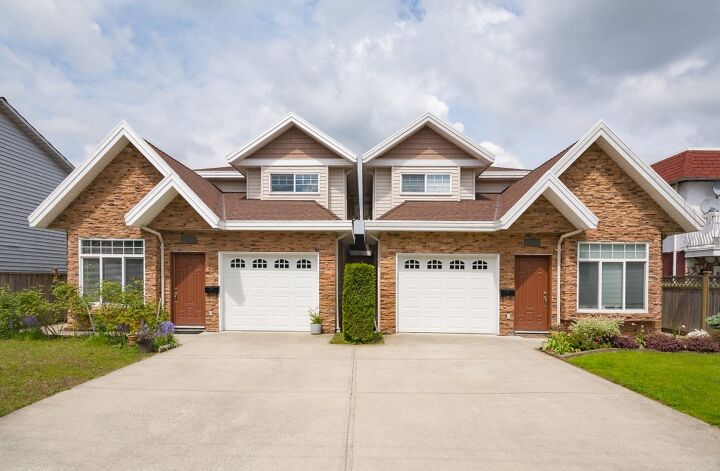






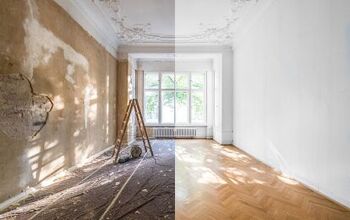

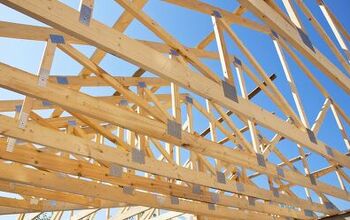
![10 Best Scroll Saws for 2022 [Ultimate Reviews & Buyer's Guide]](https://cdn-fastly.upgradedhome.com/media/2023/07/31/9070684/10-best-scroll-saws-for-2022-ultimate-reviews-buyer-s-guide.jpg?size=350x220)
![10 Best Electric Lawn Mowers - [2022 Reviews & Top Rated Models]](https://cdn-fastly.upgradedhome.com/media/2023/07/31/9070486/10-best-electric-lawn-mowers-2022-reviews-top-rated-models.jpg?size=350x220)


